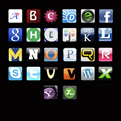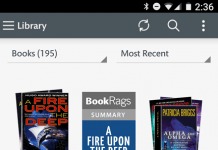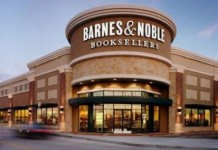 Such great device names: Kindle. Nook. Blio. Ectaco JetBook Lite. Spring Design Alex. Txtr. JournE. Skiff. Cool-er. Plastic Logic Que. iRex. Pixel Qi. Bookeen Cybook. Foxit eSlick. Astak EZ Reader. BeBook. Not exciting enough for you? How about the oh-so-brilliantly named Sony Reader?
Such great device names: Kindle. Nook. Blio. Ectaco JetBook Lite. Spring Design Alex. Txtr. JournE. Skiff. Cool-er. Plastic Logic Que. iRex. Pixel Qi. Bookeen Cybook. Foxit eSlick. Astak EZ Reader. BeBook. Not exciting enough for you? How about the oh-so-brilliantly named Sony Reader?
Most of these names are flat out horrible. What were the marketers thinking? These manufacturers are not only trying to build their brands in a crowded marketplace, they are trying to create a new market for a new generation of devices against a well established device that does not require electricity to operate, has a long history of appealing to consumers, and a brand known and recognized by millions of consumers. The book. Perhaps it should be referred to now as “POBs” (plain old books) the way landline telephones are called “POTs” to distinguish them from all the modern alternatives).
What were these manufacturers thinking? How about hiring someone who specializes in modern product naming instead of asking your grandmother or your nephew to come up with something “cool.” Even relatively poor naming choices in other technology fields and consumer products are better than these pathetic nominees. It’s difficult to get consumers to lay down hard cash for new technology when their current tech products work pretty well. Since POBs work really well for most people, and they have tremendous psychological attachments built into them (not to mention sentiment and practicality), e-reading devices are fighting an uphill battle for consumer acceptance.
When they have great names, as well as great features, products become more than devices, they can become objects of desire, objects if status, in short, they become meaningful brands. Who in our country has not heard of the iPod, even if they don’t care for Apple and will never buy one? Who has not heard of Google? They beat Yahoo on more than their name, but there is no doubt that the name contributed to their ascendency.
I think “Nook” has to take the cake as just the worst consumer product name ever. It’s stupid and makes me think of hiding in a corner of a church or a basement room. And generates the typically stupid jokes about “getting some” as in “nookie,” which is really great considering that more than 70% of books are purchased by women.
OK, Barnes & Noble has never been a consumer product manufacturer before, but come on, if you are going to play in a new business sector, why wouldn’t you learn the rules of their game? And granted, the book business has never paid much attention to consumer marketing, I’d expect more from a smart retailer like B & N. And hint to whomever there is in charge of this project – just because it sold out its first shipment, that does not mean you named it well. For the inevitable “Version 2” please consider a name change!
I have to say that the “Kindle” is not much better. When Amazon first announced it, there was a lot of snickering about this moniker too. Kindle, of course, evokes kindling, which we use to build a fire, which is maybe OK as it implies getting something off the ground, though a fire that burns widely is not something good, and kills a lot of trees (maybe that was the idea here—Kindle will kill trees so print books can’t be made anymore?) But of course, kindling is itself made of wood, so who knows? Either way, the name Kindle suggests nothing to do with books, or reading, or imaginative experience of any kind, and it doesn’t exactly spur us to want the device, so I continue to wonder, what were they thinking?
“Blio” sounds like a cartoon character and a failure at that. I can’t even think of a good joke related to how it sounds, which is pretty sad. “iRex” sounds like what a five year old kid tells his parents he has done to his room.
Que might actually be an OK name, but of course it’s not for sale yet. iRiver has created an intriguing machine called the “Story” but it’s not for sale in the USA yet. And there are any number of Korean and other obscure machines out there with equally obscure names.
What were they thinking?
People do like their gadgets these days, and more people than one might have imagined seem ready for an electronic device that allows them to stop killing their shoulders and backs carrying heavy bags full of books. I know that the target market for e-readers is not the hip youth of America, they’re reading on laptops, desktops and cell phones at a rate that boggles the mind. It’s the baby boomers who are flocking to e-readers everywhere, at least initially selling out Barnes & Noble’s buggy and slow Nook and enabling Amazon to claim that they are now selling nobody-knows-how-many-but-a-whole-lot of e-books (according to the ever effervescent Jeff Bezos.)
Imagine how many more devices could be sold if someone came up with a really cool name. OK, “iPhone” is taken and so is “Droid,” but there has got to be a great technology with an equally great name on the horizon. I hope someone is thinking of it now. My money is on Apple and Google, two companies who live and breathe technology and its applications to real people’s lives.
Oh, and while you’re at it, how about making the device we’ve all been waiting for too?
Image credit: CC-licensed image from Schnaars.


































Et tu, BookTrix?
I’m still waiting for something compelling for under $200 without the proprietary lock-down from the Amazons and the B&Ns and whatnot.
Ye who have not sinned cast the first stone – you may want to reconsider your company’s name as well because it makes me think they’re always after my lucky charms. At least the obscure and funny names makes you think what were they thinking and try to figure it out. Go figure.
I believe you can think of Kindle as kindling a passion for reading and Nook as a book nook, and your point about 70% of books being bought by women so nookie is inappropriate is lost on me. Do you know what a lot of those women are buying – yeah that’s right Romance novels.
I was reading casually on my Palm T|X but the Kindle has kindled my interest in reading and now I am burning up with the desire to get into yet another book, pun intended.
I rather like ‘nook’, it makes me smile. I’ve never understood where they got ‘kindle’ from. I still think the best is the iRex iliad. Maybe apple should go with ‘iLiad’?
I concur! I believe “Kindle” was because Jeff Bezos wanted to “kindle an interest in reading.” I would argue that no product name should start with a K because copy editors cannot resist alliteration, hence the plethora of articles about “Is product x a Kindle killer?”
As for the Nook, it just proves no one at Barnes & Noble has a dirty mind. I kind of like CyBook, though. It at least sounds futuristic.
I love it when people trash brand names, how hard could it be? Find a name that hasn’t been taken, a simple word, precise, memorable, differentiated, oh, and it must have an available URL. I named nook, it was hard, mostly to try and stop it becoming over complicated. It actually turned out well, polarizing the normal tech male audience into smutty innuendos, and women, those who actually read books, thinking about a warm and relaxing space. I’m not saying naming is an art, but staying away from complexity without being obvious isn’t easy. But nook is one letter away from book, a new book if you like. And it’s selling quite well thank you. Best Marc Shillum
I think the Nook is actually kind of a brilliant name, especially for B&N. Change the B in book, and replace it with N. It evokes finding a cozy nook to read it, suggesting you can curl up with the digital reader the same way you can with the paper version. It also has a sound similar to the pacifier brand Nuk, giving the name a cute, soothing quality. The stylized lowercase N in the font also offers a distinctive branding symbol, one that is contemporary and recognizable, and worlds away from Barnes & Noble’s usual aesthetic and connotations. I’d say, well done.
Oh, and I don’t own any of these readers, although I do find the trend fascinating. I tend to resist technology because it advances too quickly, and I hate shelling out money on top of money just to keep up.